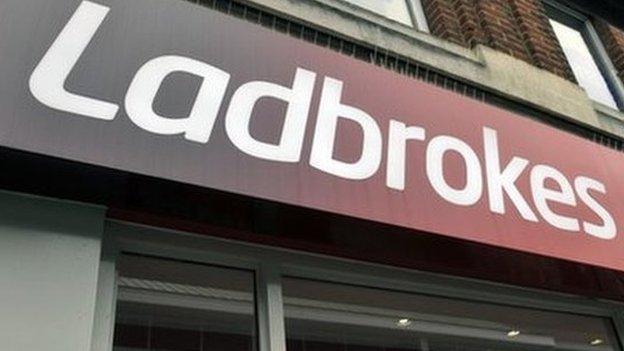Gambling industry bets on mergers and acquisitions
- Published
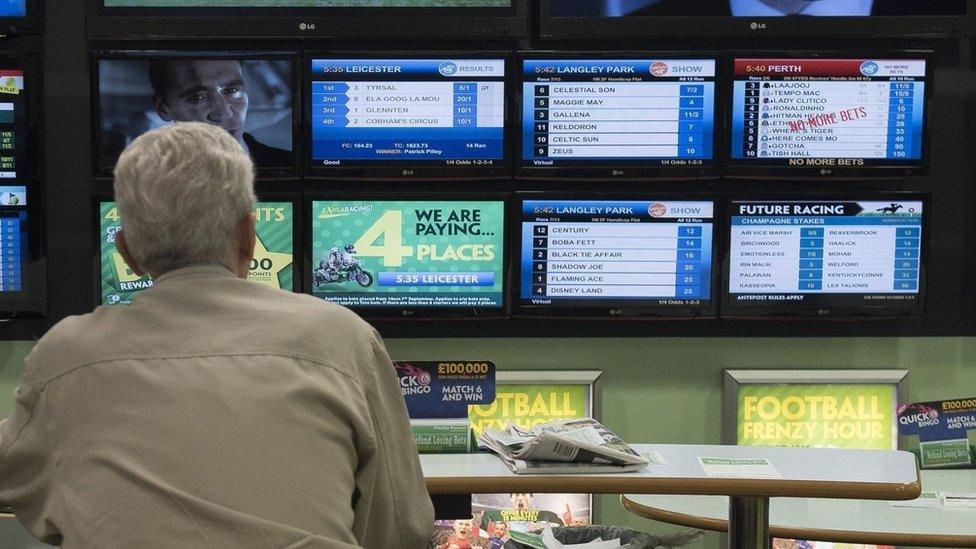
Bricks and mortar betting shops have seen customers migrate to the internet instead
The UK gambling industry is betting on a wave of mergers and acquisitions to secure a more profitable future.
A raft of big deals this year include the £2.3bn tie-up between Ladbrokes and Gala Coral in July, a £6bn merger of Betfair and Paddy Power in August, and GVC's £1.1bn ($1.5bn) acquisition of Bwin.party in September.
Analysts say a "mergers and acquisitions frenzy" is sweeping the UK.
In fact, in the year to August, there were more takeovers and mergers in the UK gambling sector than in any other country.
According to Nick Batram, an analyst at brokerage Peel Hunt, operators are looking to scale up for two main reasons.
He says: "On the one hand they are seeing the costs of tax, compliance and technology go up, and want to offset this.
"But they are also looking for new ways to grow as the market becomes more competitive."
Online surge
At first glance this may seem odd. According to the Gambling Commission, revenue in the UK gambling industry climbed from £5.6bn in 2010 to £7.1bn in 2014.
But this disguises the fact that almost all of the growth happened online, with consumers increasingly opting to gamble on mobile devices.
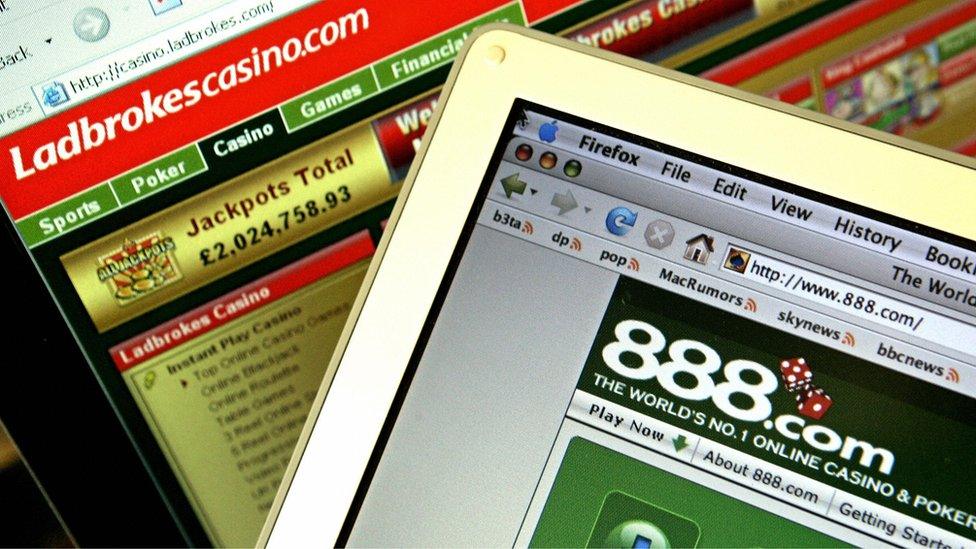
There has been a huge growth in online gambling over the past decade
As a result, High Street operators face tough trading conditions - a situation worsened by an increasingly challenging regulatory environment, which includes a maximum betting tariff of £50 each time on gaming machines.
Mr Batram says: "You have new restrictions placed on people who want to stake more than £50 a spin on machines.
"Furthermore, machine gaming duties now stand at up to 25%.
"And buying land-based assets is quite expensive anyway, because you have bricks and mortar."
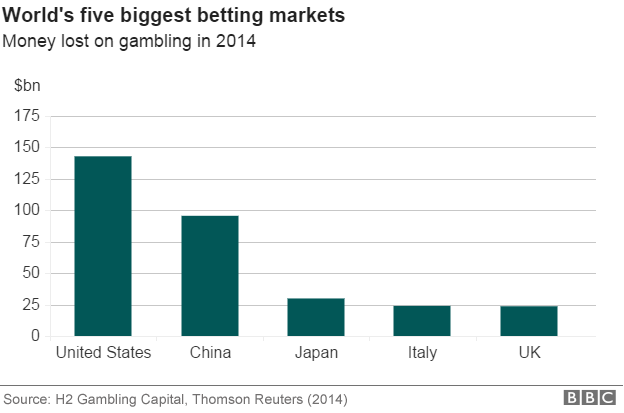
High Street bookmakers Ladbrokes and Gala Coral joined forces this summer in a bid to offset these pressures. The deal will create the UK's largest bookmaker, with around 4,000 high street betting shops, resulting in a predicted £65m of cost efficiencies.
"Ladbrokes has pretty much been running the same business as Coral, but with a different colour and a different brand, " explains Paul Leyland from Regulus Partners, an advisory business that focuses on the gambling sector.
He adds: "[And] recently Coral has been doing it much better."
Mr Leyland says that if the two firms can eliminate duplication costs and stick with the "best breed of management", they will be in a stronger position to grow.
He also says the combined group needs to invest more in its mobile offering, and boost the overall user experience.
A mobile future
Paddy Power, a familiar High Street and online betting shop, used it's 2014 annual report to claim that "over 90% of future growth would be in mobile".
And so its agreement this summer to combine with website betting exchange Betfair - making them one of the world's biggest online gaming firms - came as little surprise.
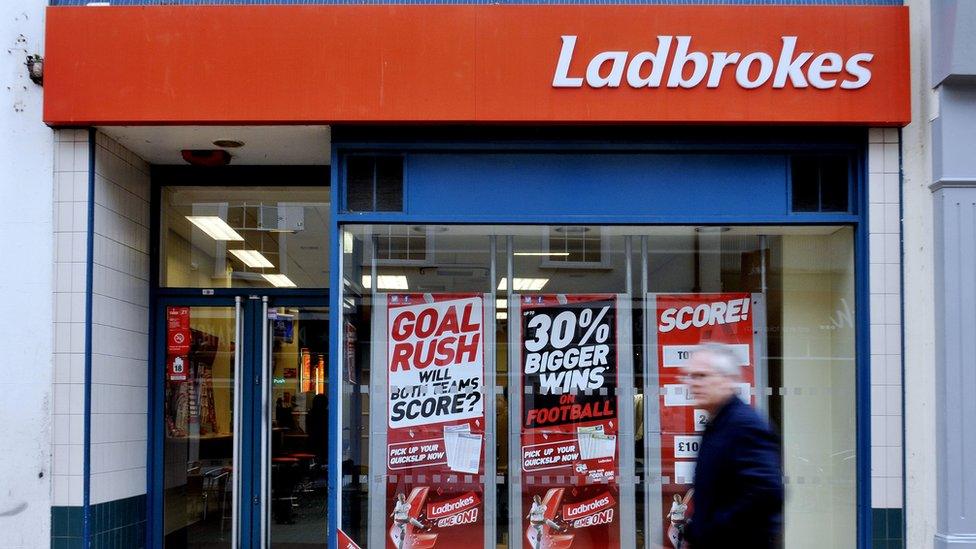
Ladbrokes has joined forces with former rival Coral
Yet despite Paddy Power's optimistic forecast, the online gambling space is becoming more challenging as countries around the world update their regulations.
For the online gambling sector, this has resulted in higher compliancy costs and taxes., external
Mark Jordan, a partner at accountancy group PWC, highlights the UK's crackdown on gambling websites which have their headquarters in Gibraltar, such as Ladbrokes' online offering, Bet Victor and Stan James.
He says: "Previously if I was headquartered in Gibraltar offering online betting to someone in the UK, that would be tax free, whereas now there is a point of consumption tax which is levied by HMRC at 15%."
Mr Batram says such pressures make it harder to invest in the technology underpinning a product.
"It's risky given how low the barriers to entry are in online gaming - providers have suddenly realised this comes off their margins, and so you're looking into consolidation and cost savings at scale again."
Mr Batram adds: "Gone are the days when you could just sling up an online casino and watch the money roll in.
"The online market is much more competitive, so your site has to feel right, look right and that costs money."
'Big influence'
Mr Jordan says that private equity companies - which were all but absent from the gambling sector five years ago - are also driving consolidation.
He points to last December's announcement that Luxembourg-based private equity group CVC Capital Partners was buying a 80% stake in Sky Bet.
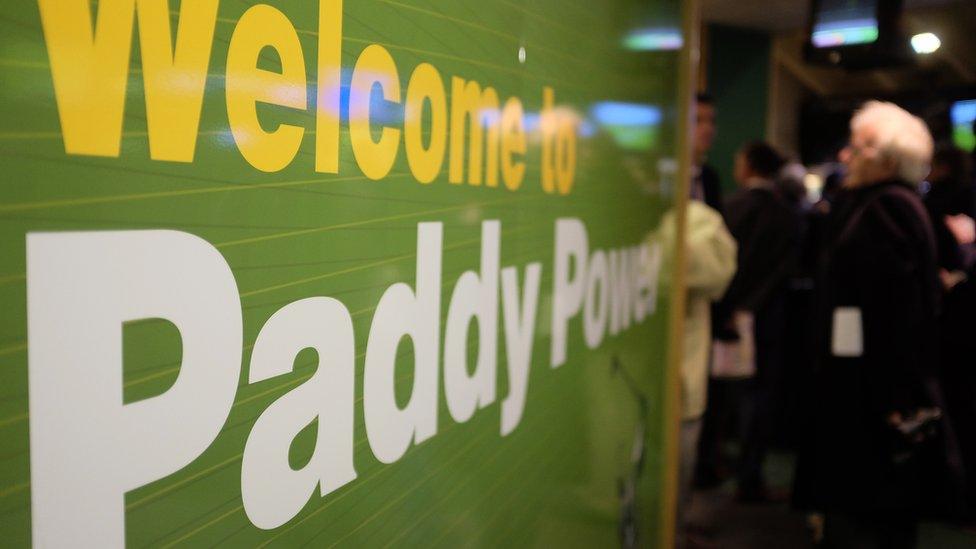
Paddy Power believes that 90% of future growth will be in the online sphere
And this month online betting firm Bwin accepted a £1.3bn takeover offer from fellow private equity firm GVC Holdings.
GVC Holdings, which already owns Sportingbet, outbid rival bidder, gambling business 888 Holdings.
Mr Jordan says: "Private equity firms like to find a business with potential, build it up and then merge it with something else, so they're having a big influence on the market."
Most analysts expect that consolidation in the gambling sector will only continue as the years progress, with larger conglomerates coming to dominate the industry.
Such firms are said to be better placed to handle regulatory and tax pressures.
However, Mr Jordan also expects to see a "small hardcore of [small] online gaming companies survive, which may not adhere to regulation, or which pick markets where they don't have the same rules".
And Mr Leyland says that small and specialist gambling companies, focused on niche markets or new products, will also thrive.
He adds: "The big risk is for medium-sized firms with a lot of money, invested in doing exactly the same thing as all their competitors."
With firms like Paddy Power betting on a digital future, it seems that companies focused on the High Street are most at risk.
But Mr Batram says it would be wrong to write them off just yet: "I think land-based gambling can still offer value if done right, and there's a lot of talk about retail combining with digital to create more touch-points for consumers.
Just as online hasn't killed cinema or high street shopping, I think it will remain an important part of the mix."
- Published4 September 2015
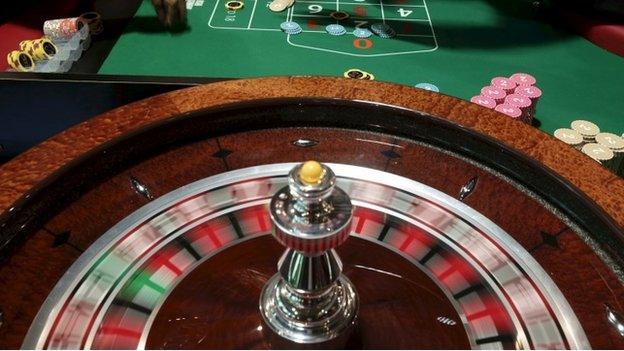
- Published26 August 2015
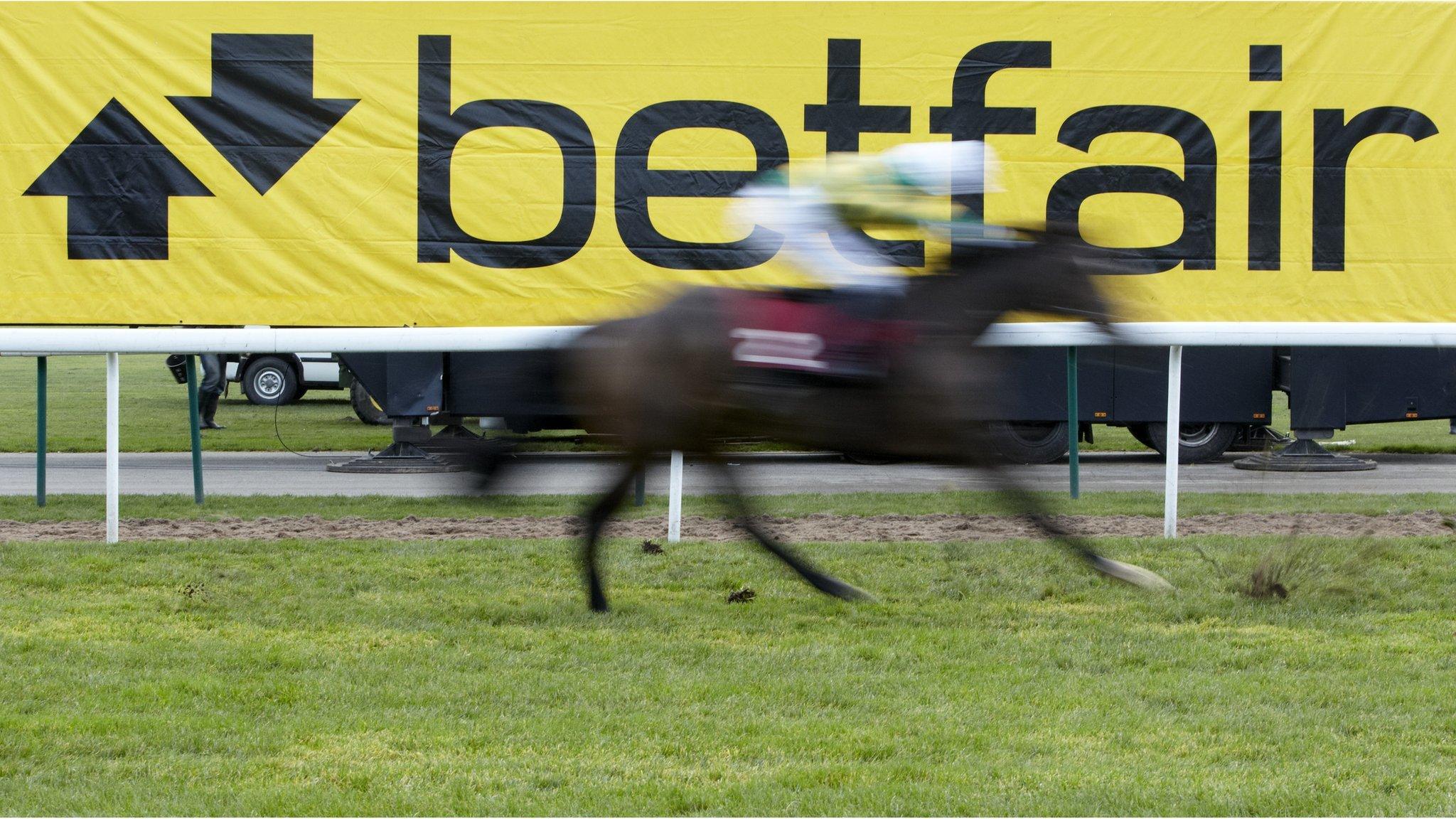
- Published24 July 2015
